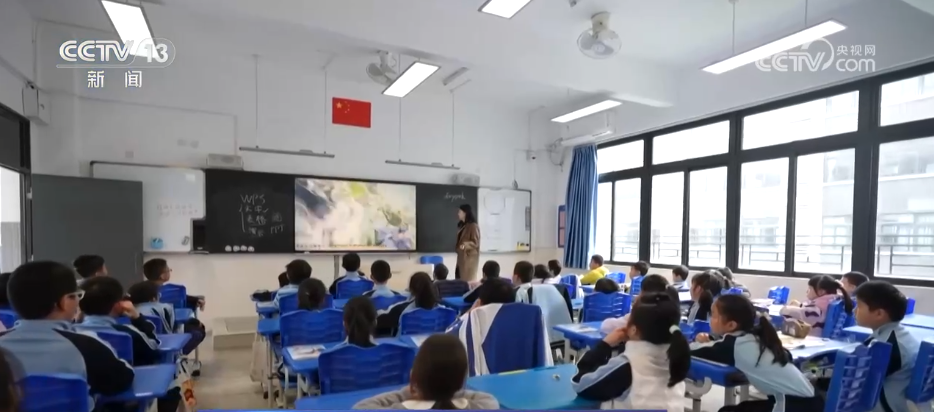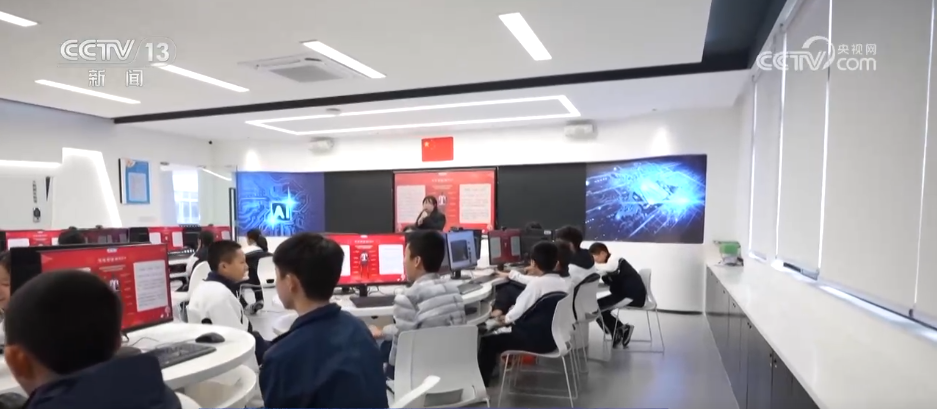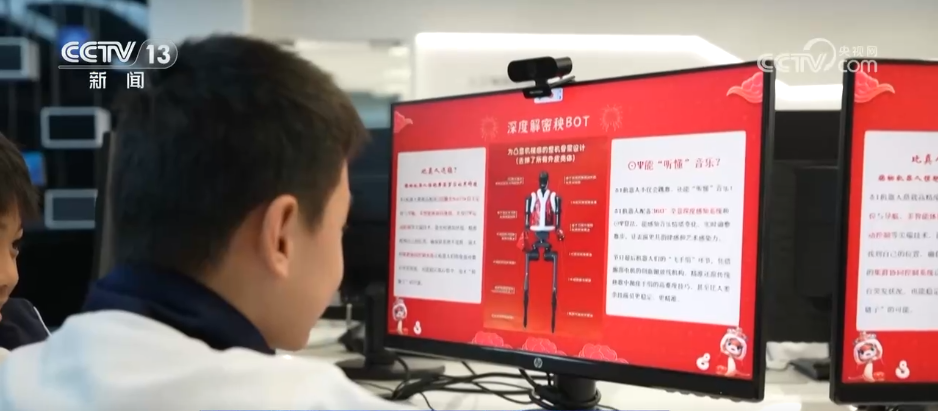CCTV News: Recently, the Basic Education Teaching Steering Committee of the Ministry of Education issued the "Guidelines for General Education of Artificial Intelligence in Primary and Secondary Schools (2025 Edition)" and the "Guidelines for Adult Artificial Intelligence Use of Primary and Secondary School Students (2025 Edition)" to scientifically and standardize the promotion of full-stage education in artificial intelligence and promote the development of artificial intelligence education in primary and secondary schools.

The "Guidelines for General Education of Artificial Intelligence in Primary and Secondary Schools (2025 Edition)" aims to build a scientific and complete general education system for artificial intelligence with literacy cultivation as the core, and realize the literacy development from cognitive enlightenment to innovative practice through spiral curriculum design: the primary school stage focuses on interest cultivation and basic cognition, the junior high school stage strengthens technical principles and basic applications, and the high school stage focuses on systematic thinking and innovative practice. At the same time, we will promote the shift of artificial intelligence education from local pilot projects to full-region coverage.
Encourage exploration to incorporate artificial intelligence literacy into students' comprehensive quality evaluation

In terms of general education and teaching evaluation of artificial intelligence, the General Education Guide clearly states that it is necessary to build a diversified evaluation system and focus on the combination of process evaluation and result evaluation. Improve the evaluation implementation mechanism and form a file for the growth of students' artificial intelligence literacy. It is encouraged to explore the inclusion of artificial intelligence literacy in students' comprehensive quality evaluation.
"Guidelines for the Use of Adult Artificial Intelligence for Primary and Secondary School Students (2025 Edition)" focuses on the application scenarios of generative artificial intelligence in primary and secondary school education, clarify the use standards of each stage, ensure that technology can safely, reasonably and effectively assist teaching, promote students' personalized learning, and promote the intelligence of education management.

Differentiated application of differentiated stages to avoid students' excessive technical dependence
The "Guidelines for the Use of Adult Artificial Intelligence for Primary and Secondary School Students (2025 Edition)" clarifies the use standards for each stage of school. While proposing "differentiated application of differentiated stages", it emphasizes the need to avoid students' excessive technical dependence.
The Usage Guidelines propose that primary school students use open content generation function with the help of teachers and parents to prevent unreasonable use from affecting students' knowledge construction and thinking development. In junior high school, logical analysis of generated content can be moderately explored to guide students to cross-verify the rationality of generated content. In high school, exploratory learning can be carried out in combination with technical principles to guide students to independently evaluate the social impact of generated content.
In order to prevent students from weakening their independent thinking ability due to excessive dependence on generative artificial intelligence, the Usage Guide also explicitly prohibits students from directly copying the content generated by artificial intelligence as homework or exam answers, and restricts the abuse of artificial intelligence in creative tasks, and eliminates "work-based" usage behavior from the source. At the same time, we will strengthen the guidance responsibilities of teachers and require teachers to actively carry out critical thinking training in teaching practice. By organizing students to analyze the logical defects, value tendencies and cultural deviations of artificial intelligence generated texts, cultivate students' skepticism and ability to identify the content output of technology, and effectively improve the autonomy of information processing.
In order to ensure students' privacy and data security, the "User Guide" strictly prohibits teachers and students from entering sensitive data such as exam questions, personal identity information when using generative artificial intelligence tools. All primary and secondary schools need to establish and improve the "whitelist" system for generative artificial intelligence tools. After strict review and evaluation, only tools that meet the needs of educational scenarios and whose data is safe and compliant are allowed to enter the campus for use.